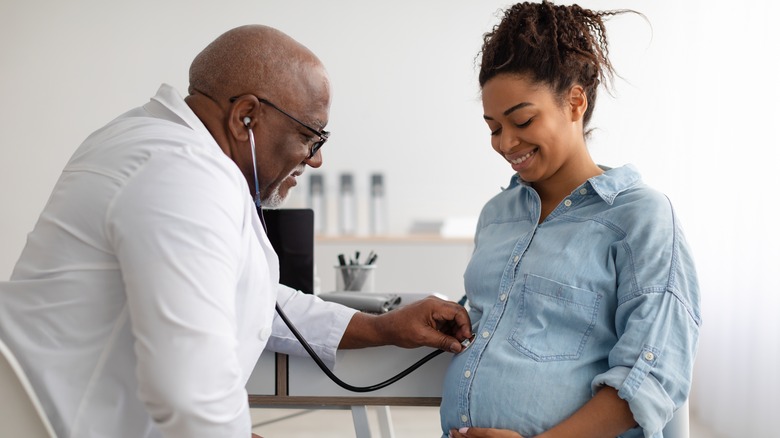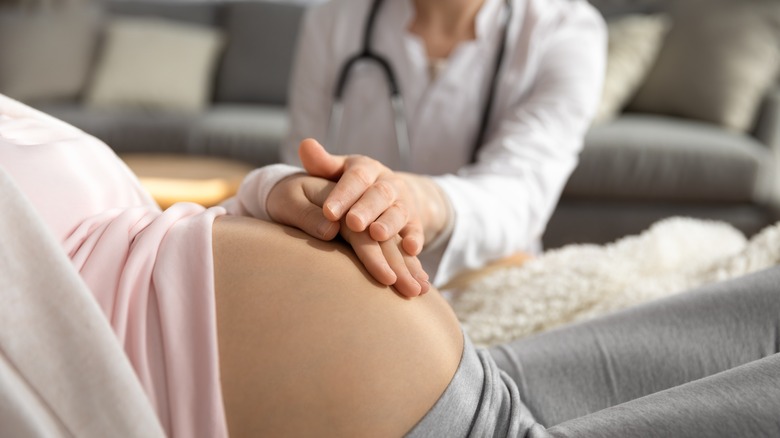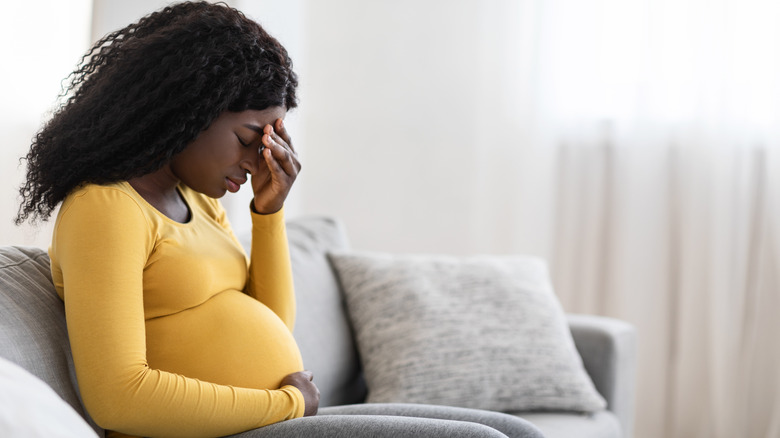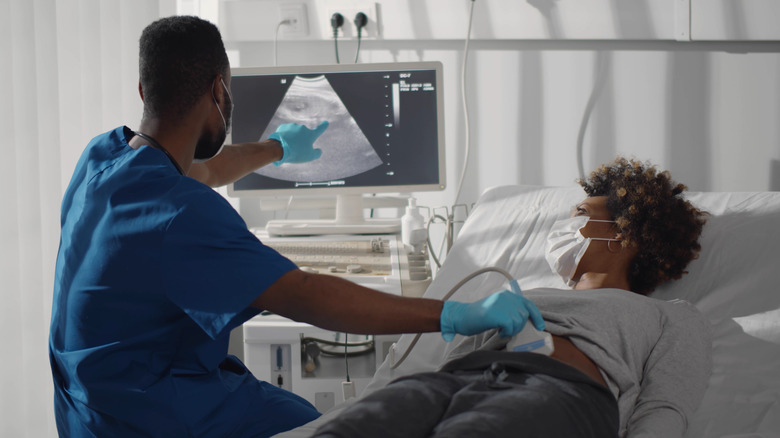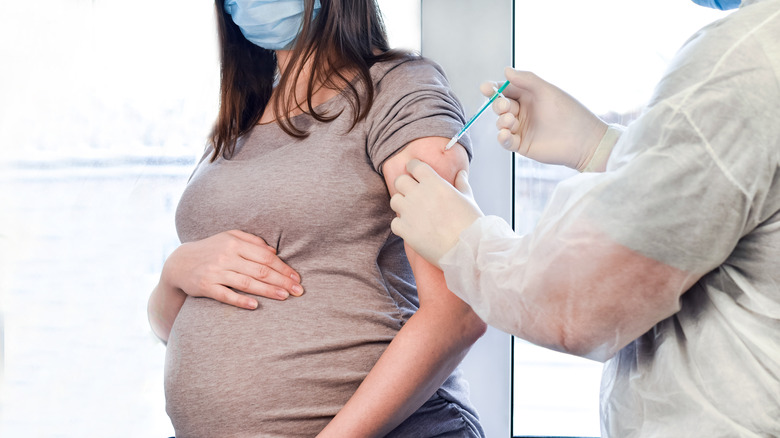How Getting COVID-19 Might Affect Your Pregnancy, According To Dr. Michael Blaivas - Exclusive
If you're pregnant or plan to become pregnant, you may be concerned about how contracting COVID-19 could potentially affect your pregnancy. While experts agree that it's best to do everything you can to avoid getting COVID-19, there is limited data on the exact impact COVID-19 can have on your body and your baby while you're pregnant (via WebMD). That's why it's best to follow all the necessary safety precautions in order to help yourself stay safe and steer clear of COVID-19.
That being said, there's no guarantee that you won't still get COVID-19 even if you take every precaution. If you suspect that you have COVID-19 while you're pregnant, you should contact your doctor immediately and seek access to priority testing. In an exclusive interview with Health Digest, Dr. Mike Blaivas, Chief Medical Officer at Anavasi Diagnostics, shares how COVID-19 can impact pregnancy and explains all of the potential risks.
How the risk of contracting COVID-19 varies during pregnancy
As it turns out, pregnant people are not at a greater risk of getting COVID-19 after all. That's because there is no concrete or conclusive evidence to suggest that people who are pregnant are any more likely to contract COVID-19 than those who are not pregnant, according to Blaivas. "At least one study cited in the media suggested this, but suffered from a very small sample size and other biases, which means you cannot draw that particular conclusion from their data," Blaivas says.
He also noted that the author of the study shared the same sentiment. Meanwhile, some of the largest studies out there have found that, while there are some increased risks associated with COVID-19 infection during pregnancy, there is no greater risk of contracting the virus while pregnant, Blaivas explains. "For those in doubt, this question may not be completely settled until even more studies are published," he says.
How COVID-19 can impact health during pregnancy
Although they may not be more likely to become infected, pregnant people are still at an increased risk of severe illness from COVID-19. According to Blaivas, the risks of COVID-19 infection are still pretty low on average, but they do pose a greater threat to people who are pregnant compared to those who are not. That being said, not all pregnant people are at the same risk level. "These greater risks generally apply to women with chronic problems, like diabetes, high blood pressure, or cardiovascular disease," Blaivas says.
As a matter of fact, these conditions may have more of an impact on the severity of illness than pregnancy. "Women with these chronic health conditions were more likely to suffer a severe illness from COVID such as one requiring hospitalization or intensive care unit management, compared to pregnant women who do not have these health issues, according to a large recent multinational study," he shares.
How does can virus affect the fetus?
The virus doesn't just pose a risk to the health of the parent, however. Blaivas says that it can also potentially cause pregnancy complications that can affect the health of the fetus."The virus can affect the unborn child directly and indirectly," Blaivas explains. "Indirectly, it can increase the risk of severe pregnancy complications such as preeclampsia, eclampsia, and HELLP syndrome, among others." In addition, COVID-19 infection can also have a more direct impact on fetal development. That's because any type of pregnancy complication can potentially have an effect on the health and development of the fetus, according to Blaivas.
"Maternal COVID infection also increases the risk of neonatal complications such as preterm birth, low birth weight, bronchopulmonary dysplasia, hypoxic-ischemic encephalopathy, sepsis, intraventricular hemorrhage, anemia, and others, making ICU admission likelihood higher," he shares. Expectant parents will want to talk to their doctor about any COVID-19 symptoms and the best course of action if they test positive.
How to stay safe
According to Blaivas, the best way for pregnant people to stay safe is to get vaccinated against COVID-19. Since the Centers for Disease Control and Prevention (CDC) classify pregnant people as a high-risk population, it's important that they receive one of the three available vaccines in order to reduce the severity of illness and avoid hospitalization. This is especially imperative for pregnant people with underlying health issues.
"Clearly, women who may become pregnant and have chronic health issues such as diabetes, high blood pressure, and cardiovascular disease should be especially cautious and speak to their physician about vaccination against Covid," Blavais says. Research shows that getting a COVID-19 vaccine does not pose a risk to pregnant people and their babies (via Mayo Clinic). In fact, vaccination is a safe and effective way for pregnant people to build antibodies against the virus, which can help protect both themselves and their unborn children.
To learn more about Dr. Michael Blaivas, visit Anavasi Diagnostics.

